


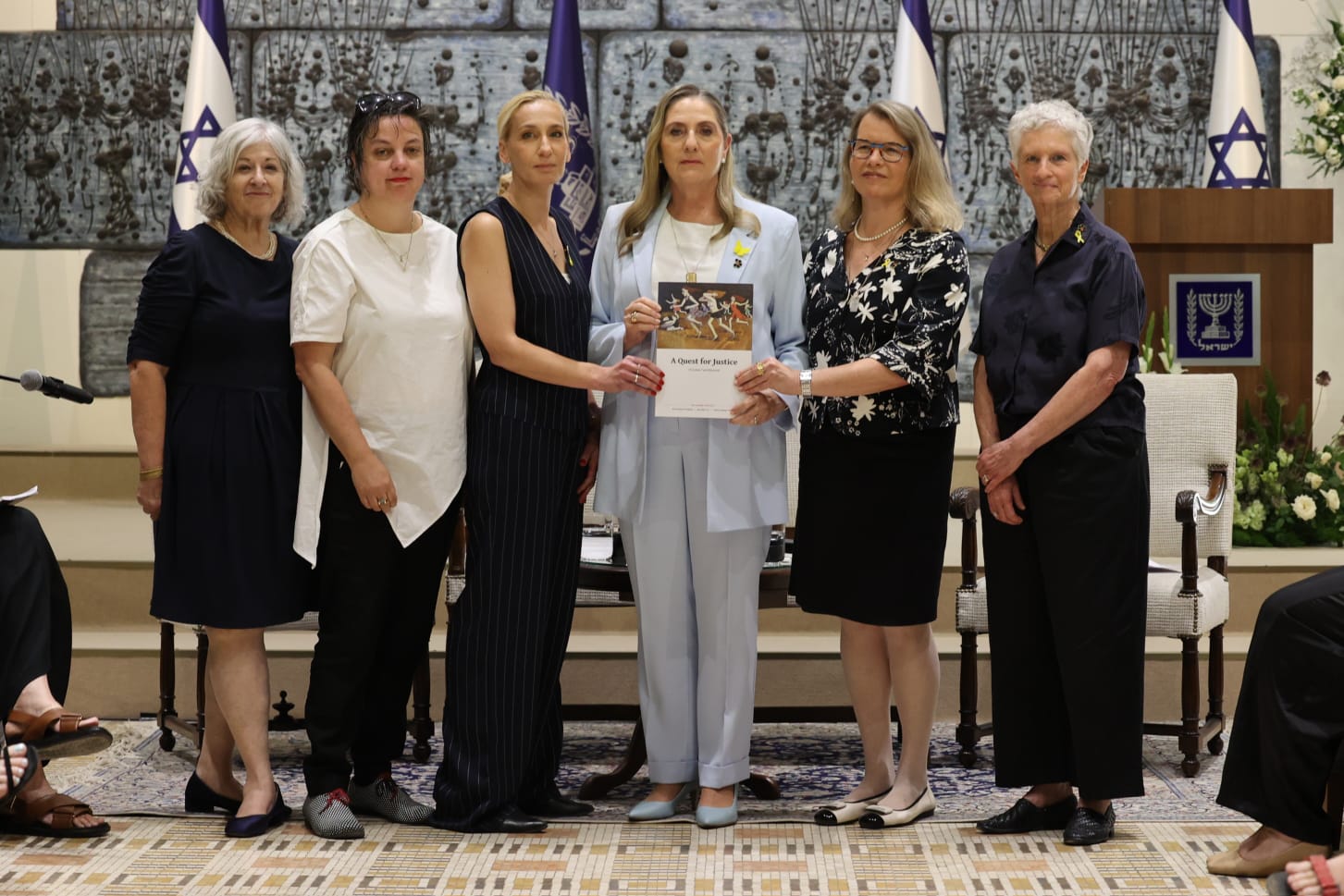
A new report providing the first legal framework to prosecute Hamas terrorists for the use of sexual violence as a weapon of war during the October 7, 2023, massacre was presented Tuesday to First Lady Michal Herzog at the President’s Residence in Jerusalem.
The report by the Dinah Project confirms that Hamas systematically used rape and sexual violence during the massacre as part of a broader campaign of terror, collective humiliation, and dehumanization of Israeli society.
Titled, “A Quest for Justice: October 7 and Beyond,” it is the first report to offer a legal roadmap based on international law for identifying and pursuing justice for the use of sexual violence as a weapon of warfare, which constitutes a crime against humanity.
Tuesday’s gathering of primarily women included former hostage Ilana Gritzewsky, 31, who has publicly spoken out about being sexually assaulted by her captors in Gaza.
Gritzewsky recounted her abduction on October 7 from her home on Kibbutz Nir Oz, where she lived with her partner, Matan Zangauker, who was also kidnapped and remains in captivity.
“I remember that they hit me and I screamed, and then there was darkness. When I woke up, I was half-naked surrounded by terrorists,� she told the gathering.
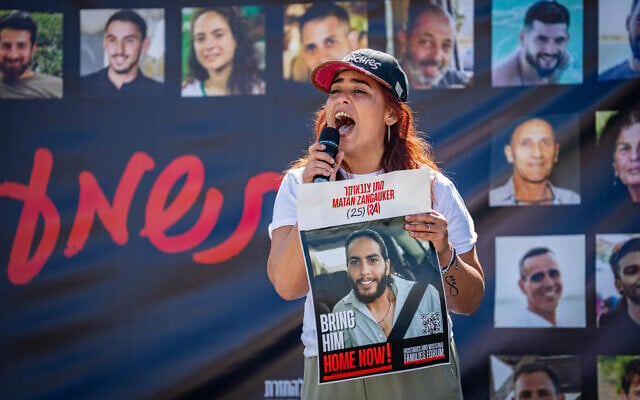
“They beat me. I went through hell. My bones were broken, but that didn’t compare to the psychological pain I was put through,” she said. “Nobody should experience what I did.â€�
Gritzewsky was released after 55 days in captivity, during the first ceasefire deal between Israel and Hamas in November 2023. She and Zanguaker’s mother, Einav, have emerged as central figures in protests seeking a ceasefire deal to return the remaining hostages.
“Almost two years later, there are those who still ask if this really happened. I’m here to tell you that it did and it’s still going on,� she said. “My Matan is still there. I don’t know what they’re doing to him, but I know what they did to me. I wake up every morning with the fear that he is experiencing what I did.�
With Prime Minister Netanyahu in Washington for meetings on a potential hostage release and ceasefire deal with Hamas, Gritzewsky addressed the government directly: “To the prime minister and the cabinet — don’t waste this opportunity. Sign a deal and end the war.�
“This report tells the truth as it is — shocking, painful, but necessary. On behalf of all those who were harmed, we are committed to continuing the fight until their cries are heard everywhere and justice is done,� said Herzog.
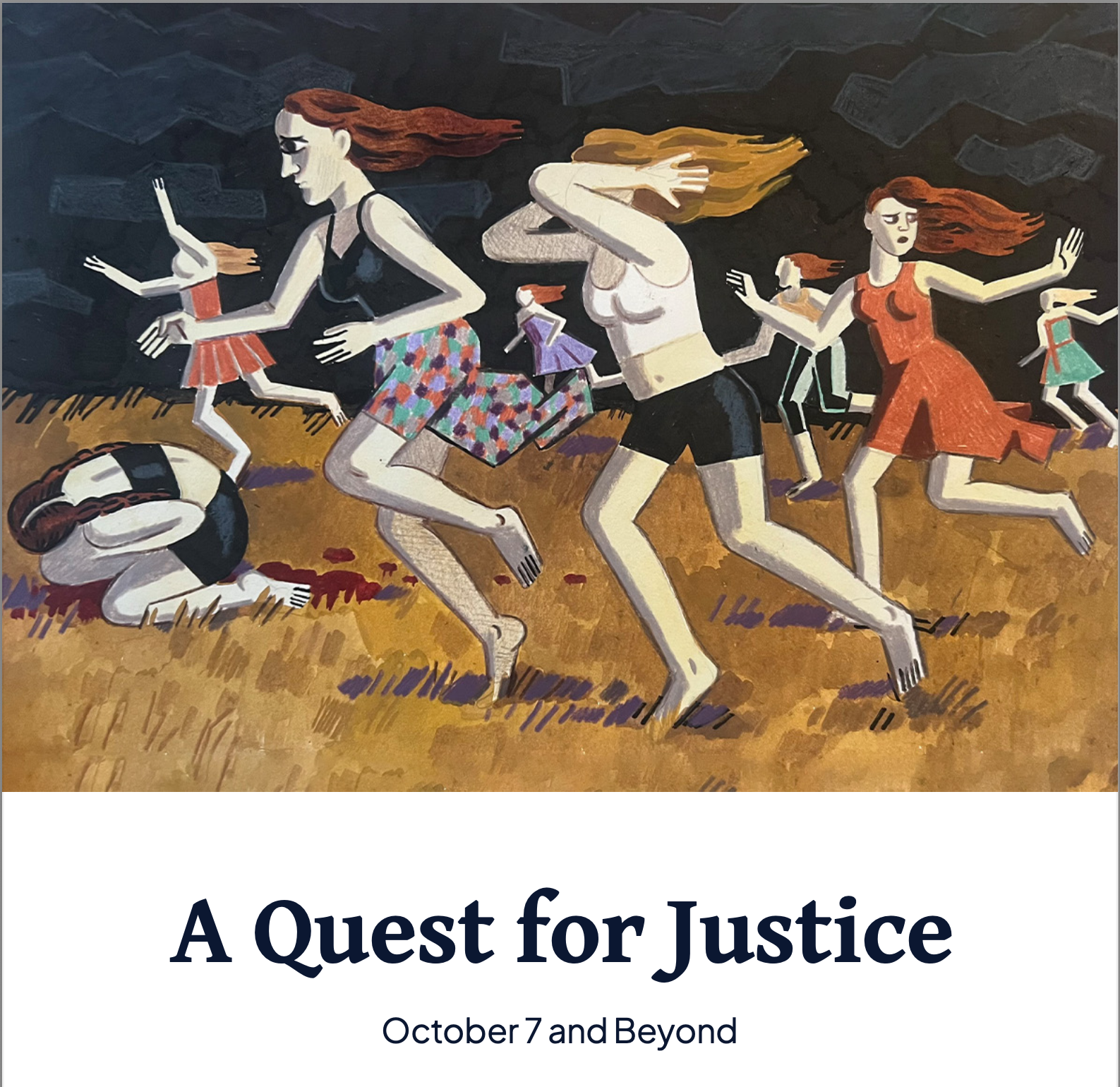
“We are sending a universal message: that sexual violence cannot be accepted as a tool of war,� she said, drawing attention to the plight of the remaining 50 hostages, including Inbar Hayman, the single remaining female captive, who is believed to be dead.
“Sexual violence in conflict is a weapon. It is not random, not targeted only at individuals, and not without intent from above. It is time for the international community to treat it as such,� said Prof. Ruth Halperin-Kaddari, a legal expert at Bar-Ilan University, who co-authored the report alongside retired judge Nava Ben-Or, and Col. (res.) Sharon Zagagi-Pinhas, former chief military prosecutor of the IDF.
The Dinah Project, an initiative formed following October 7 that works to achieve recognition and justice for survivors of sexual violence in conflict zones, spent a year and a half consolidating all available evidence and reports on sexual violence perpetrated by Hamas during the attack and subsequently against hostages.
Research for the report ran into several challenges that the findings seek to address: the scarcity of direct testimony from victims, the often inadvertent destruction of evidence from sites of the crimes, and the difficulty of linking specific perpetrators to specific crimes or victims in the fog of war.
“Sexual crimes during war are — forgive me — a ‘perfect crime,’â€� said Zagagi-Pinhas, explaining that, amid the chaos of war, “perpetrators can rely on the silence of their victims, either because they murder them, which was the case for most of the victims who were assaulted on October 7, or for the survivors. There is so much trauma and shame unique to the crime that they often won’t talk about it.â€�
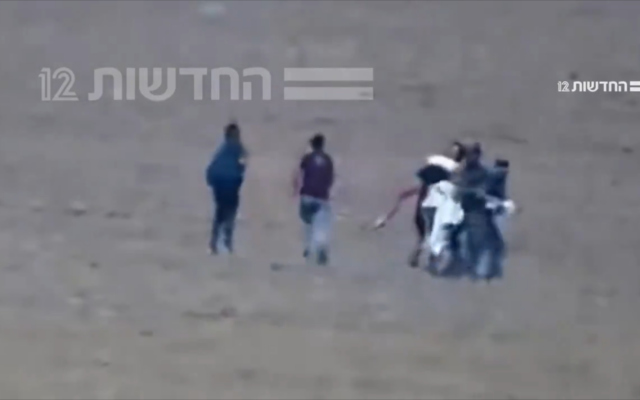
The report consolidated data on sexual violence on October 7 and grouped it methodologically based on testimony from first-hand survivors, eyewitnesses, first responders, workers at the Shura military base, which served as a morgue, healthcare workers, and therapists, as well as captured photos and video footage.
The authors acknowledged that it is not the first report to collate data on the use of sexual violence on October 7. Such research has already been conducted by others, including by the Office of the Under Secretary General of the UN’s special representative on sexual violence in conflict, Pramila Patten, in March 2024.
Based on existing doctrine in international and Israeli law, the authors call for the promotion of a key legal principle: the imposition of collective criminal responsibility on all participants in the attack — even if they did not personally commit rape — on the grounds that they knew, should have known, or took part in enabling sexual violence during the attack.
“Our goal is to demonstrate how perpetrators and commanders can be prosecuted even without direct testimony against each individual,� said Halperin-Kaddari.
The next steps they intend to pursue include calling on the Israeli government and judiciary to apply the doctrine of collective responsibility in order to prosecute terrorists for sexual crimes as crimes against humanity and urging the UN Secretary General to add Hamas to the blacklist of organizations that use sexual violence as a weapon of war, in accordance with past Security Council resolutions.
The authors of the report then want to establish a legal process and framework that can be used internationally for prosecuting sexual crimes in war before the International Criminal Court (ICC) in The Hague and UN human rights bodies.
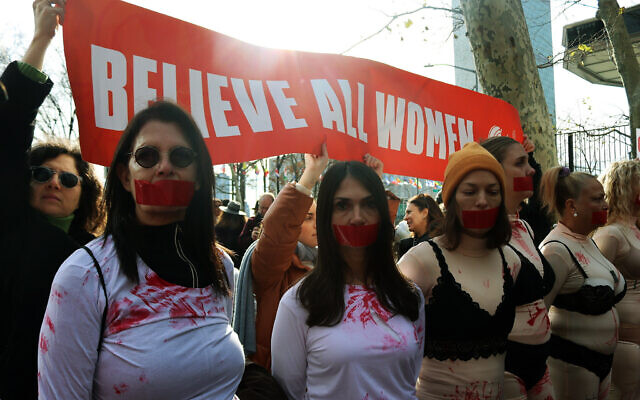
Finally, they are seeking to use their research to develop a new legal protocol for addressing sexual violence in armed conflict, including rules for evidence collection, the use of indirect evidence, and recognition of the community-wide harm caused by such acts.
Several speakers referred to the feeling of “betrayal� they felt from the world, especially from other women, who they expected to show empathy and solidarity. The widespread denial of the sexual crimes committed against Israeli women and men on and since October 7 was one of the other motivations for producing the report.
“There was an expectation that women around the world would understand and support us, like in other conflicts. The feeling of their backs turned on us was painful,� said Herzog. “As Israeli women, we need to scream for those who cannot anymore and bring them justice.�
“This report is about breaking the silence. It is a physical object that was put together by spirits — those of the tortured, murdered victims, but also in the spirit of sisterhood,â€� said the event’s moderator, journalist Tali Lipkin-Shahak.
